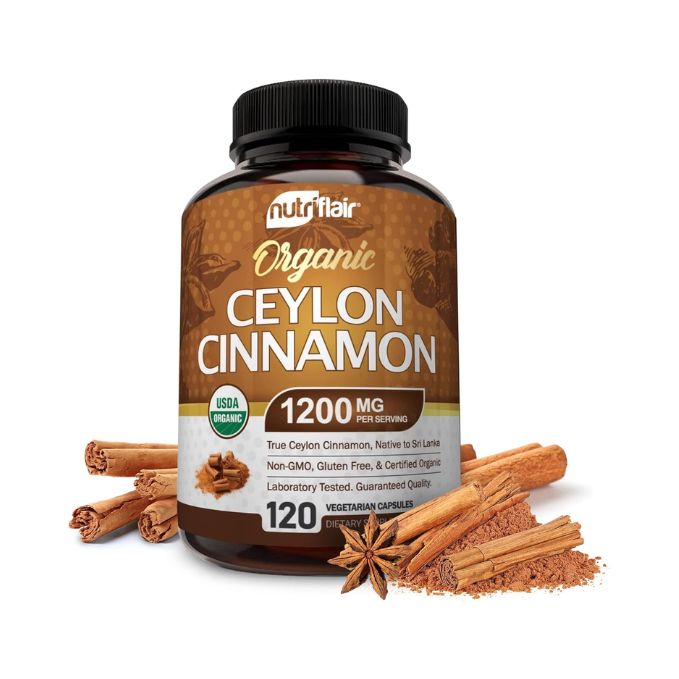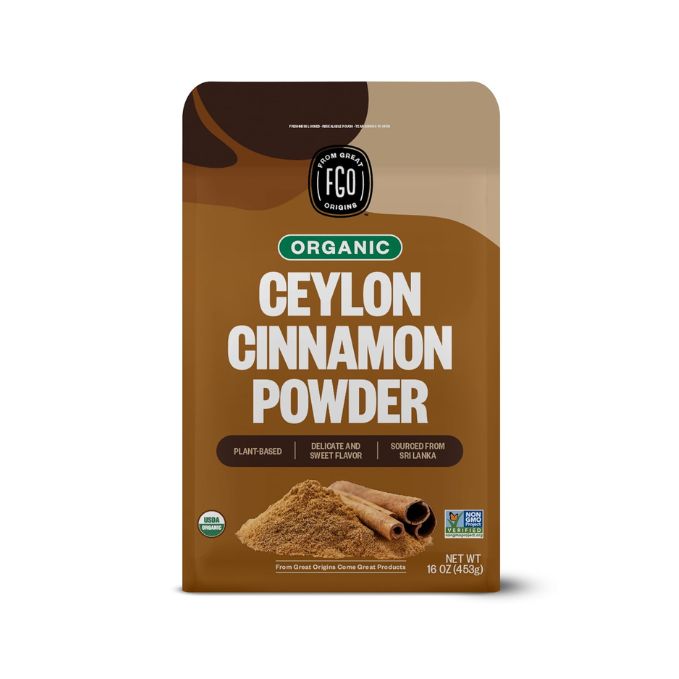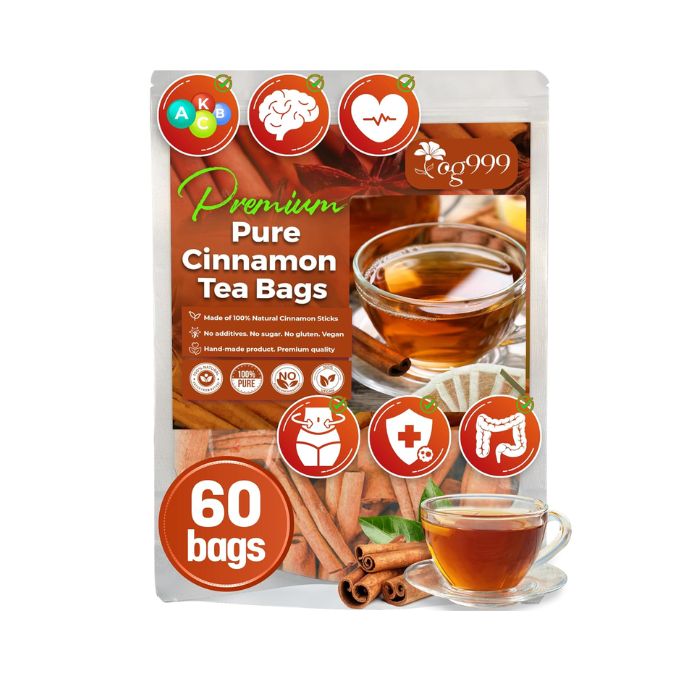Are you finding it challenging to regulate your blood sugar levels? You’re not alone—many people face this struggle every day. It can feel overwhelming at times, especially with all the conflicting information out there. Remember, recognizing this challenge is the first step towards a healthier journey, and you have the power to take control!
Navigating the Challenges of Blood Sugar Control
Prescription drugs for regulating blood sugar levels, such as insulin and oral hypoglycemic agents, are essential for many individuals with diabetes but are not without their drawbacks. These medications can lead to various side effects, including weight gain, hypoglycemia, and gastrointestinal issues (Cryer, 2007). Additionally, over-reliance on medication without addressing lifestyle factors such as diet and physical activity may lead to suboptimal management of blood sugar levels and increased risk of cardiovascular complications. Research has shown that while intensive glucose control can reduce microvascular complications, it does not significantly reduce the risk of major cardiovascular events and may increase the risk of hypoglycemia, which can have severe consequences (Giorgino et al., 2013). Non-pharmacological interventions, including dietary modifications, regular exercise, and weight management, are crucial components of a comprehensive approach to managing diabetes and can lead to better overall health outcomes without the adverse effects associated with long-term medication use (American Diabetes Association, 2020).
Regulating Blood Sugar with Cinnamon Benefits
Cinnamon has been shown to help regulate blood sugar levels through various mechanisms. Several studies have demonstrated that cinnamon can improve insulin sensitivity and reduce blood glucose levels. A meta-analysis by Allen et al. (2013) found that cinnamon intake significantly reduced fasting blood glucose levels in people with type 2 diabetes. This effect is attributed to compounds in cinnamon, such as cinnamaldehyde and polyphenols, which have been shown to enhance insulin signaling and glucose uptake in cells. Additionally, a study by Anderson et al. (2003) reported that cinnamon supplementation improved insulin sensitivity and blood lipid profiles in patients with type 2 diabetes. These findings suggest that incorporating cinnamon into the diet could be a beneficial complementary approach to managing blood sugar levels naturally.
Cinnamon: A Natural Powerhouse in Various Forms
Cinnamon is a versatile spice with various forms, each offering unique benefits. Cinnamon capsules provide a convenient way to support blood sugar regulation and improve insulin sensitivity, while cinnamon powder can be easily incorporated into recipes, enhancing both flavor and nutritional value. For a soothing beverage, cinnamon tea not only warms the body but also offers antioxidant properties that promote overall health and well-being.

NutriFlair Organic Ceylon Cinnamon Supplement 1200mg
These capsules deliver a concentrated dose of organic Ceylon cinnamon, celebrated for its powerful antioxidant properties and potential benefits for metabolic health. Adding this supplement to your daily routine may help support healthy blood sugar levels, enhance digestion, and promote overall wellness, making it a convenient choice for maintaining health.
FGO Organic Ceylon Cinnamon Powder
This raw cinnamon powder from Sri Lanka is ideal for culinary use, allowing you to add a warm, aromatic flavor to both sweet and savory dishes. Rich in antioxidants, incorporating this spice into your meals can provide various health benefits, including anti-inflammatory effects and potential support for heart health, all while enhancing taste.


Special Cinnamon Tea
This caffeine-free herbal tea made from pure Ceylon cinnamon offers a soothing and aromatic beverage option that can be enjoyed at any time of day. Drinking cinnamon tea may help with digestion and provide antioxidant support, making it a comforting choice for relaxation and overall health enhancement without added sugars or gluten.
Steps Towards Better Blood Sugar Management
In the journey toward better blood sugar management, understanding the complexities of your health is vital. With various strategies and natural aids available, you can take proactive steps to create a healthier lifestyle. Remember, every small change contributes to your overall well-being and empowers you to achieve lasting results.
Transform Your Destiny
Are you ready to unlock your full potential and create a life you love? Embrace practical and proven techniques to help you master your mind, empower your body, and rule your life.
Disclosure: Start Now How is no longer an Amazon Associate. Links to Amazon products in this post are provided solely for informational purposes and do not result in any commission. For more details, please see our Privacy Policy.
Legal Disclaimer
The information provided on this website, including blog posts and downloadable materials, is for educational and informational purposes only and is not intended as medical advice. The content is not a substitute for professional medical advice, diagnosis, or treatment. Always seek the advice of your physician or another qualified health provider with any questions you may have regarding a medical or psychological condition. Do not disregard professional medical advice or delay in seeking it because of something you have read on this website. The use of any information provided on this website is solely at your own risk. Before beginning any new health regimen, including natural remedies, exercise routines, mindfulness practices, or life improvement strategies, consult with your general physician to ensure it is appropriate for your individual health needs and conditions.
References
American Diabetes Association. (2020). Standards of Medical Care in Diabetes—2020. Diabetes Care, 43(Supplement 1), S1-S212. https://diabetesjournals.org/care/article/43/Supplement_1/S1/30756/Introduction-Standards-of-Medical-Care-in-Diabetes
Cryer, P. E. (2007). Hypoglycemia, functional brain failure, and brain death. Journal of Clinical Investigation, 117(4), 868-870. https://www.jci.org/articles/view/31669
Giorgino, F., Leonardini, A., & Laviola, L. (2013). Cardiovascular disease and glycemic control in type 2 diabetes: now that the dust is settling from large clinical trials. Annals of the New York Academy of Sciences, 1281(1), 36-50. https://nyaspubs.onlinelibrary.wiley.com/doi/10.1111/nyas.12044
Allen, R. W., Schwartzman, E., Baker, W. L., Coleman, C. I., & Phung, O. J. (2013). Cinnamon use in type 2 diabetes: An updated systematic review and meta-analysis. Annals of Family Medicine, 11(5), 452-459. https://www.annfammed.org/content/11/5/452
Anderson, R. A., Broadhurst, C. L., Polansky, M. M., Schmidt, W. F., Khan, A., Flanagan, V. P., … & Graves, D. J. (2003). Isolation and characterization of polyphenol type-A polymers from cinnamon with insulin-like biological activity. Journal of Agricultural and Food Chemistry, 52(1), 65-70. https://pubs.acs.org/doi/10.1021/jf034916b

